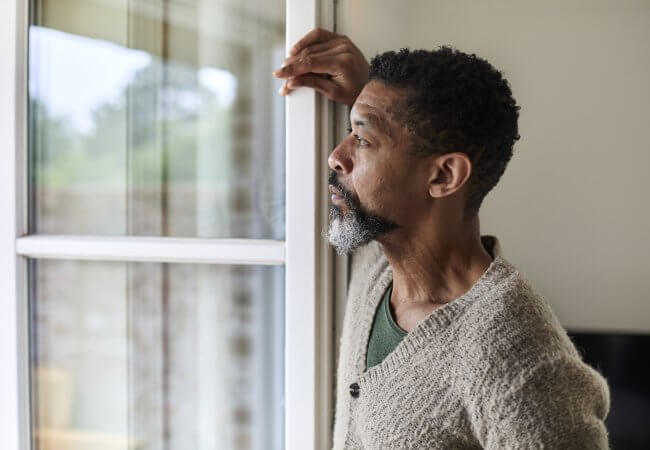
Dec 17, 2020
Community Support at the Tip of Your Fingers
Try as they might to be everything to everyone, and much as it might seem that they are, nurses and family caregivers cannot do it all. Especially now, as the pandemic surges and the holiday season approaches.
This reality is made worse by today’s conundrum: While wearing masks and staying physically apart keeps us safest during the pandemic, social isolation holds its own threats.
That’s why those who operate as nonstop support systems for others and those who are receiving support should know about two potential sources of resilience from AARP: Friendly Voices and Community Connections. Indeed, nurses themselves need and deserve to tap into these resources as needed, and can also spread the word to others. The Future of Nursing: Campaign for Action is an initiative of AARP Foundation, AARP and the Robert Wood Johnson Foundation.
AARP Friendly Voice (888-281-0145)
Sometimes, just hearing a friendly voice on the other end of the line can help, as the Friendly Voice site says. A part of Community Connections, this service offers trained volunteers just a phone call away who can offer a much-needed touch of humanity.
Community Connections
Whether you need help getting groceries or walking your dog—or want to help others with such needs—AARP Community Connections offers a one-stop online shop that guides you to local resources where you can learn how to get help or give it. Community Connections also points to information about health and wellness and more.
Underscoring the need for these services is a recent report by AARP Foundation, in collaboration with United Health Foundation, which found that two-thirds of adults say they are experiencing social isolation and high levels of anxiety since the beginning of the pandemic. “The Pandemic Effect: A Social Isolation Report,” released in October, noted that many of those affected have not turned to anyone for help, perhaps because many don’t have reliable social support networks
Social isolation “is a very real public health crisis,” says Lisa Marsh Ryerson, president of AARP Foundation. “Decades of research on prolonged social isolation and loneliness … [shows that it is] worse for health than obesity and as damaging to health as smoking 15 cigarettes a day.”
The National Academy of Medicine in early 2020 also released a report on social isolation.
The Community Connections offers nurses and others who find themselves overtaxed by demands—or alone and lonely—the resources to do just that. Susan Reinhard, RN, PhD, FAAN, senior vice president and director, of AARP Public Policy Institute and caregiving initiative leader, reported recently in Home Alone Revisited: Family Caregivers Providing Complex Care, caregivers who have no one to talk to about private matters, and no one to call for help, are at higher risk for strain and depression.
Reinhard is also chief strategist of the Center to Champion Nursing in America, an initiative of AARP Foundation, AARP and RWJF, and the Campaign’s operating arm.
Peed directs CCNA’s Office of Center Integration.
